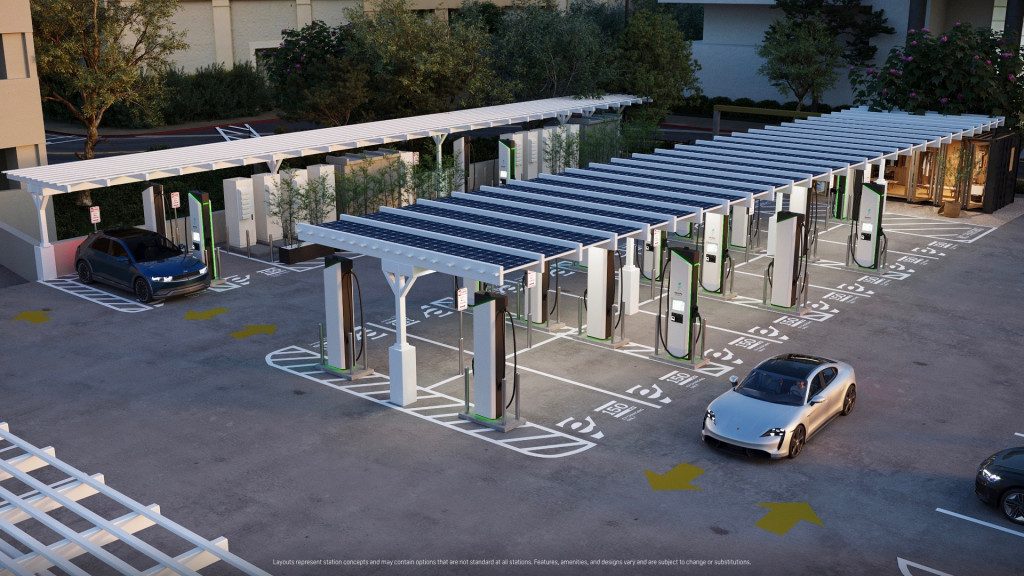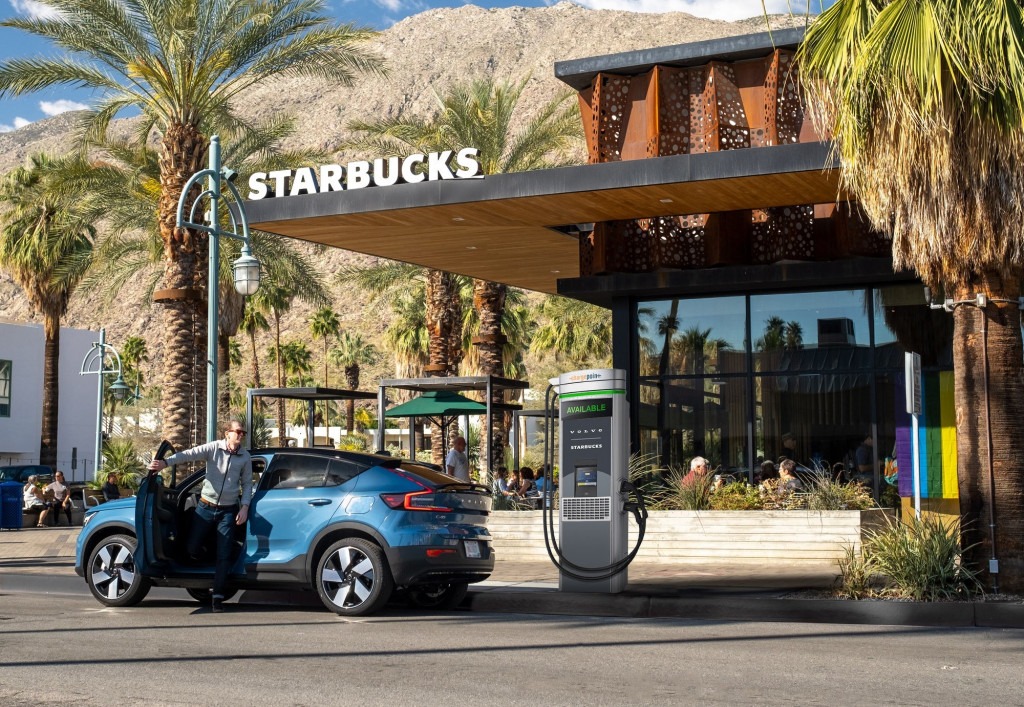The federal government on Thursday further sketched out plans for a national EV charging network to be funded by the Biden administration's infrastructure law.
The Federal Highway Administration (FHWA) released a Notice of Proposed Rulemaking (NPRM) proposing minimum standards for the network, which aims to install 500,000 chargers by 2030.
The FHWA is proposing a minimum of four 150-kw connectors per DC fast-charging site. Those sites should be positioned 50 miles apart, and less than a mile from highways, according to the proposal.

Electrify America upscale charging concepts
The proposal also calls for increased interoperability to address the current difficulty of charging at stations with different hardware, with different operators, as well as pricing that doesn't require memberships or loyalty programs. Maintenance provisions are included as well, which might help the current unreliability of public chargers.
Without proposing its own rules, the FHWA also called for public comment on how to develop standards for rescuing EVs that run out of charge. Plentiful charging stations should make those incidents rare, but having protocols in place could lessen traffic disruption and increase safety should they occur, the FHWA noted.
This started to take form with the infrastructure bill last November—but it's just the start toward a $7.5B nationwide network of 500,000 chargers.

Volvo pilot fast-charging network, via Starbucks
Then late last year it came up with some early guidance, as well as a continuation of the separate Alternative Fuel Corridors program, followed by a call earlier this year for states to submit plans of how they would use shares of the funding.
It still begs the question of whether an existing network, such as Tesla's might be open to being part of such a national network. If Tesla opens up on access and pricing, then, perhaps, yes. But given today's rules, it seems increasingly unlikely.











